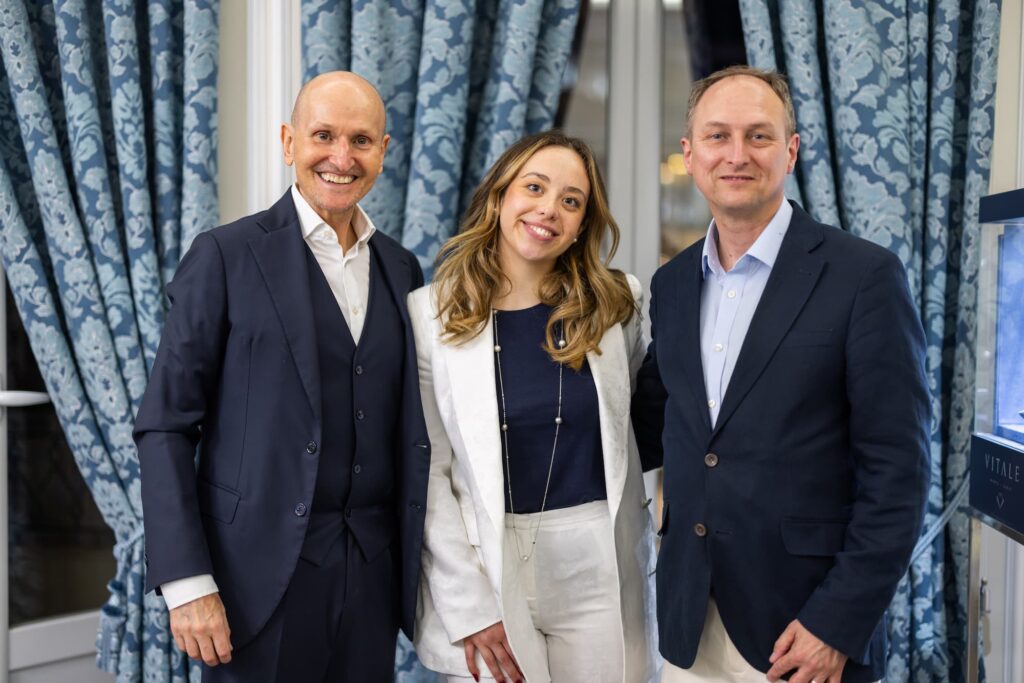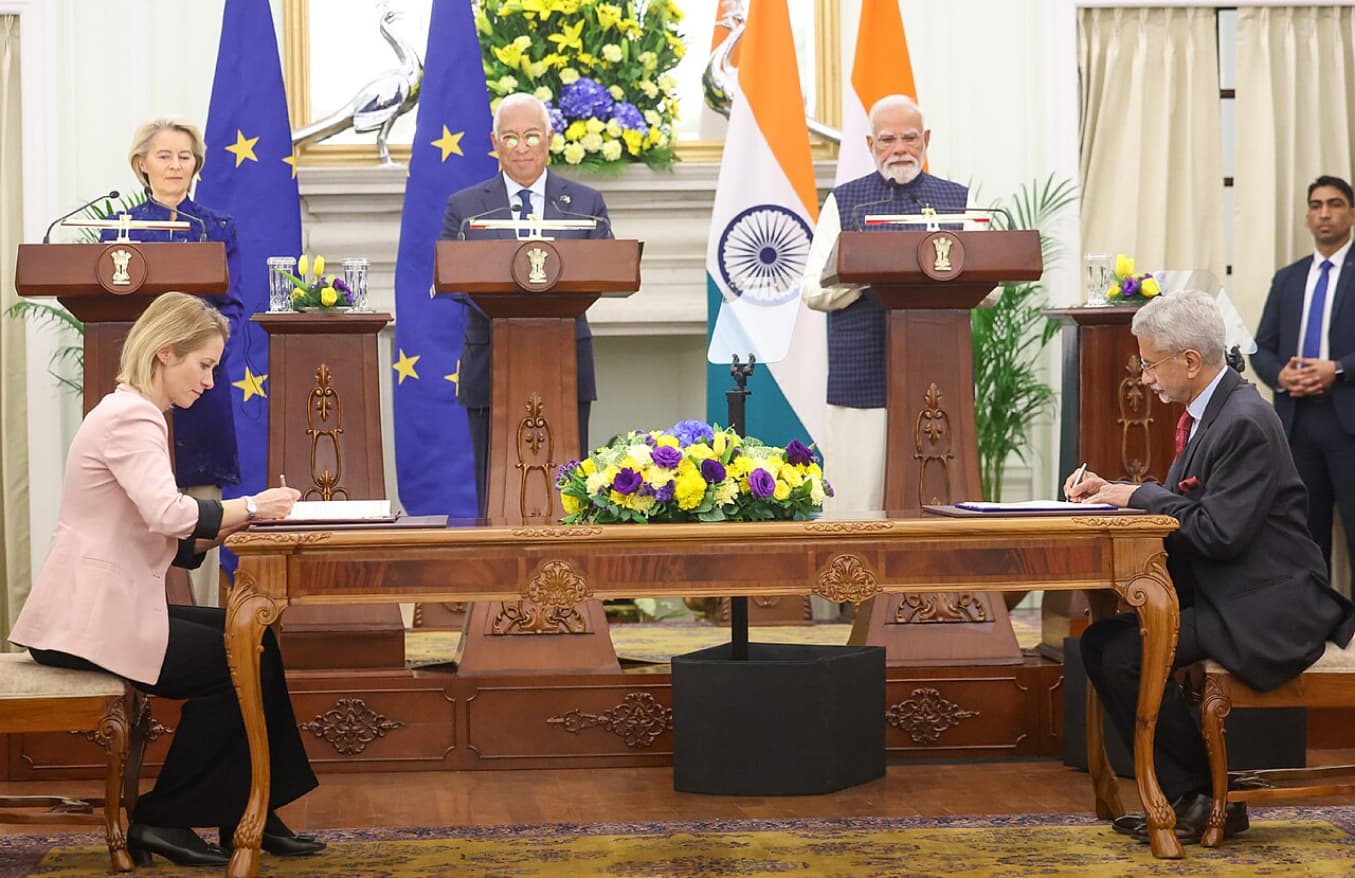In the gleaming harbor of Monte-Carlo, where superyachts worth hundreds of millions rest against the Mediterranean backdrop, Rebecca Gabbi discovered her calling. It wasn’t the obvious allure of wealth that captivated her, but something far more profound: the intricate psychology behind how the world’s most discerning individuals make decisions that ripple through entire industries.
As Vice President of Client Strategy & Global Market Development at Lexden Luxe, Rebecca has positioned herself at the epicenter of one of the most significant economic shifts in modern history. The largest generational wealth transfer ever recorded is reshaping not just who holds the world’s fortunes, but how they choose to deploy them. And Rebecca has made it her mission to decode the complex behavioral patterns of these ultra-high-net-worth individuals (UHNWIs) as they redefine the very meaning of luxury.


“My inspiration came from recognising that ultra-high-net-worth individuals represent one of the most complex and influential consumer groups in the world,” Rebecca reflects on her journey into this rarefied realm. “Their decisions and preferences go far beyond product ownership, and matching their expectations is pivotal for businesses to remain competitive.”
Her path to becoming one of the world’s leading authorities on UHNWI behavior began with an unexpected catalyst: her passion for yachting. “Yachting, in many ways, embodies the ultimate expression of luxury,” she explains. “The biggest projects offer the ability to tailor every detail to an individual’s vision. This idea of creating one-of-a-kind experiences inspired me to study how the meaning of ‘luxury’ is now rooted in the value of ‘bespoke.’”
THE EVOLUTION OF A LUXURY STRATEGIST
Rebecca’s role at Lexden Luxe has undergone a remarkable transformation that mirrors the broader shifts within the luxury ecosystem itself. What began as helping brands elevate service and experience design has evolved into something far more comprehensive and strategic.
“Initially, my focus was on helping brands elevate service and experience design,” Rebecca explains. “Today, my role increasingly involves guiding companies through strategic transformation, leveraging bespoke customer experience frameworks and behavioral insights to meet UHNW values, particularly in the context of the upcoming generational wealth transfer.”
This evolution reflects Rebecca’s understanding that the luxury landscape is experiencing seismic changes. The traditional markers of prestige are being reimagined by a generation that values purpose alongside privilege, sustainability alongside exclusivity. Her response has been to create what she calls “a holistic ecosystem around strategic experience design.”
Central to this approach is Lexden Luxe’s exclusive global series of events that Rebecca has pioneered. These gatherings represent more than networking opportunities; they are carefully curated spaces where the theoretical meets the practical, where client expectations intersect with strategic foresight.
“These gatherings truly become platforms where client expectations and strategic foresight meet,” Rebecca notes. “By curating these moments, we enable brands to stay connected to the heartbeat of the luxury market while fostering a culture of shared vision.”
REDEFINING LUXURY FOR THE DIGITAL ARISTOCRACY
Perhaps nowhere is Rebecca’s insight more valuable than in her understanding of how the next generation of wealthy consumers defines luxury itself. Her analysis challenges many conventional assumptions about what drives purchasing decisions among the ultra-wealthy.
“For the next generation of wealthy consumers, luxury is related to having premium access to truly unique experiences,” Rebecca explains. “Time has become the ultimate currency for UHNWIs, and the most valuable investment they can make is one where the return is measured in meaningful, well-spent moments.”
This insight reveals a fundamental shift from ownership to access, from possession to experience. The new luxury paradigm isn’t about acquiring objects but about eliminating friction from life’s most precious resource: time.
“This means removing complexity and stress, ensuring that every detail is seamlessly managed, so they never have to think about the logistics or feel burdened by them,” Rebecca continues. “The ability to enjoy time effortlessly, without friction, is the real marker of modern luxury.”
THE SCIENCE OF INTUITION: BALANCING DATA WITH HUMAN INSIGHT
Rebecca’s methodology represents a sophisticated blend of analytical rigor and intuitive understanding. At Lexden Luxe, she has developed frameworks that combine advanced analytics with qualitative insights drawn from conversations, case studies, and market research.
“Data reveals patterns, but intuition brings context,” Rebecca explains her approach. “Data helps us identify trends, preferences, and behaviors at scale, but human intuition, rooted in experience and close industry relationships, allows us to interpret the why behind those numbers.”
This hybrid methodology becomes particularly crucial when analyzing UHNWI behavior, where decisions are rarely driven by straightforward metrics alone. The ultra-wealthy operate in a realm where emotional resonance, personal values, and individual circumstances create complex decision-making matrices that pure data analysis cannot fully capture.
“For UHNWIs, this balance is especially critical because their decisions are rarely driven by straightforward metrics alone,” Rebecca notes. “That’s why we place significant emphasis on bespoke dialogues, in-depth interviews, and real-world observations.”
DEBUNKING THE MYTHS: UNDERSTANDING THE NEW GENERATION
One of Rebecca’s most valuable contributions to luxury strategy has been her ability to identify and correct misconceptions about the new generation of UHNWIs. These misunderstandings have led many brands astray, creating strategies based on outdated assumptions rather than current realities.
“Many assume that the new generation of UHNWIs is less interested in heritage and craftsmanship,” Rebecca observes. “In reality, they still value these elements deeply, but they expect them to be expressed in ways that are relevant to their world.”
This insight reveals the nuanced nature of generational change among the ultra-wealthy. Rather than abandoning traditional luxury values, they are demanding their evolution. “Craftsmanship must be paired with modern relevance, whether that means sustainable materials or personalized design,” Rebecca explains. “They are looking for heritage that evolves with the times, not one that remains static.”
The misconceptions often stem from surface-level observations about digital nativity and social consciousness. “The misconception often comes from assuming that because younger UHNWIs are digitally native and more socially conscious, they have abandoned traditional markers of luxury,” Rebecca clarifies. “In truth, they are redefining them, demanding a blend of legacy and progress aligned with their lifestyle.”
NAVIGATING THE GREAT WEALTH TRANSFER
Rebecca’s work exists at the intersection of several powerful trends, but none more significant than the largest generational wealth transfer in history. Her analysis of this phenomenon reveals patterns that will reshape entire industries over the coming decades.
“We see UHNWIs moving away from conspicuous consumption toward purpose-driven ownership,” Rebecca observes. “This means they seek investments that combine utility, discretion, and positive impact. Private aviation, sustainable yachts, and philanthropic ventures are prime examples.”
The shift from status symbol to utility tool exemplifies this transformation. “Think about flying on a jet,” Rebecca illustrates. “During the last century, it was viewed purely as a status symbol, while now it’s nothing but a tool for efficiency and time savings.”
This evolution extends across all luxury categories. In yachting, sustainability has become a decisive factor, with growing interest in eco-conscious designs that enhance wellbeing while minimizing environmental impact. Similarly, philanthropic ventures and impact-driven investments are increasingly seen as essential components of legacy building.
THE DIGITAL NATIVE ADVANTAGE
Rebecca’s research has identified a critical differentiator among next-generation UHNWIs: their digital fluency and accompanying expectations for technological integration. This characteristic creates both opportunities and challenges for luxury brands.
“Next-generation UHNWIs are distinctly more digitally fluent than their predecessors,” Rebecca explains. “They expect seamless integration of technology into every aspect of their experience, from discovering a brand to the post-purchase journey.”
However, digital fluency alone doesn’t satisfy this demographic. They demand that technology serve their desire for bespoke experiences rather than standardized solutions. “They highly value the ability to deliver bespoke customization through digital platforms,” Rebecca notes. “They want technology to make them feel understood and served wherever they are through curated access to services and assets.”
REFRAMING LEGACY FOR A NEW ERA
Rebecca’s insights into how younger wealthy individuals approach legacy reveal a fundamental shift in motivations and methodologies. The traditional concept of legacy as public display has evolved into something more sophisticated and intentional.
“Legacy plays a significantly more intentional role for younger wealthy individuals today, but it’s framed differently than in previous generations,” Rebecca explains. “Rather than focusing on legacy as a public display of influence or family name, many next-gen UHNWIs see it as a form of quiet responsible stewardship.”
This approach manifests in selective, thoughtful investments that prioritize long-term positive impact over short-term visibility. “They are deeply selective in how and where they invest or spend their wealth, favoring initiatives that create long-term positive impact over short-term visibility,” Rebecca observes. “This often includes supporting philanthropic causes in anonymity.”
THE PERSONALIZATION IMPERATIVE
In Rebecca’s analysis, personalization has evolved from luxury amenity to fundamental requirement. The sophisticated expectations of UHNWIs demand levels of customization that go far beyond traditional luxury offerings.
“Personalization has moved beyond monograms to encompass bespoke services and predictive anticipation of needs,” Rebecca explains. “Crafting a unique ecosystem of bespoke services and curated experiences is pivotal, whether that means ensuring a yacht is provisioned with a guest’s favorite vintage champagne or arranging an impromptu art viewing in a private gallery.”
The key lies in leveraging data intelligently while maintaining discretion, creating experiences so precisely tailored that clients feel understood on a personal level. “By leveraging data intelligently and discreetly, brands must create experiences so tailored that the client feels understood on a personal level, and those that excel here secure long-term loyalty,” Rebecca notes.
THE QUIET LUXURY REVOLUTION
Rebecca has identified a clear trend toward discretion among UHNWIs, but her analysis reveals the nuanced nature of this shift. The movement toward quiet luxury doesn’t represent a complete retreat from visibility but rather a desire for control over when and how one is seen.
“We see a clear trend towards quiet luxury and discretion,” Rebecca explains. “For many UHNWIs, true luxury today lies in being invisible to the outside world while enjoying absolute comfort and exclusivity.”
This preference manifests in choices like private villas, invitation-only cultural events, and yachts designed with layouts that shield guests from view. However, Rebecca emphasizes that quiet luxury coexists with carefully curated moments of exposure.
“Quiet luxury does not mean the complete absence of visibility,” she clarifies. “Instead, it often coexists with carefully curated moments of exposure with a select audience. The key here is control: UHNWIs want the power to decide when, how, and to whom they are visible.”
BRIDGING THE VALUE GAP
Through her consulting work, Rebecca has identified a critical disconnect between what luxury brands offer and what UHNWIs actually seek. This gap represents both a challenge and an opportunity for brands willing to evolve their approach.
“The gap lies in assumed versus actual value,” Rebecca explains. “Too many brands continue to equate luxury with opulence, believing this alone will resonate. Yet, for today’s and tomorrow’s UHNWIs, such displays often feel outdated.”
The solution requires a fundamental shift in perspective. “What they increasingly seek are authentic, purpose-driven experiences that align with their identity,” Rebecca continues. “In essence, many brands still sell what they assume is luxury, while UHNWIs are buying what truly enhances their lives.”
BUILDING UNBREAKABLE LOYALTY
Rebecca’s framework for fostering long-term loyalty among UHNWIs centers on trust-based relationships that transcend traditional vendor-client dynamics. Her approach recognizes that ultra-wealthy individuals seek partners, not just service providers.
“By creating trust-based relationships, you ensure becoming an integral part of the client’s lifestyle,” Rebecca explains. This involves three critical components: transparency, consistency, and foresight.
“Transparency means open communication and clear provenance, which are non-negotiable for the next generation,” she notes. “Consistency ensures that every interaction delivers the same uncompromising standard of excellence. And foresight is the hallmark of true ultra-luxury.”
The ultimate goal transcends repeat purchases. “Loyalty is all about a relationship so tight that the client cannot imagine entrusting their experiences to anyone else,” Rebecca emphasizes.
THE FUTURE OF ULTRA-LUXURY
Rebecca’s vision for the next decade of ultra-luxury reveals several transformative trends that will reshape the industry. Her predictions are grounded in deep analysis of current behavioral patterns and emerging preferences among UHNWIs.
“One of the most defining shifts will be the rise of sustainability as a baseline rather than a differentiator,” Rebecca predicts. “Alongside this, digital and AI-driven personalization will reshape how luxury is delivered to enable a level of intimacy and precision previously unattainable.”
Community will also play an increasingly important role. “We will also see a surge in community-based luxury to provide both privacy and connection, appealing to UHNWIs who value selective visibility,” she explains.
Perhaps most significantly, ownership models themselves will evolve. “Experiential ownership models such as fractional ownership and access-driven services will become increasingly popular,” Rebecca notes. “Rather than tying up capital in singular assets, clients will prioritize flexible access to a portfolio of extraordinary experiences.”
DEFINING SUCCESS IN THE NEW LUXURY PARADIGM
Rebecca’s definition of success for luxury brands in this new era reflects her deep understanding of what truly matters to tomorrow’s ultra-wealthy consumers. Success cannot be measured solely in traditional metrics but must encompass the depth and quality of relationships formed.
“Success is closely dependent on being a partner UHNWIs turn to instinctively because it understands who they are and who they aspire to be,” Rebecca concludes.
This perspective encapsulates Rebecca’s broader philosophy: that luxury in the modern era is fundamentally about understanding and serving the complete person, not just their purchasing power. It’s about creating experiences so meaningful and relationships so trusted that they become integral to clients’ lives and identities.
THE LEGACY OF A LUXURY PIONEER
Rebecca Gabbi represents a new generation of luxury strategists who understand that the future belongs to those who can decode not just what the ultra-wealthy want, but why they want it. Her work at Lexden Luxe has established her as an essential voice in understanding how generational change, technological advancement, and evolving values are reshaping the luxury landscape.
Her influence extends beyond individual consulting engagements to shape industry standards and expectations. Through her strategic guidance, luxury brands are learning to navigate the complex transition from traditional prestige markers to purpose-driven experiences. Her global events create spaces where theory meets practice, where the abstract concepts of luxury evolution become concrete strategies for success.
As the largest wealth transfer in history continues to unfold, leaders like Rebecca provide essential insights into what this transformation means for businesses, communities, and society at large. Her understanding that true luxury lies in seamlessly enhancing life’s most precious resource—time—offers a roadmap for brands seeking relevance in an era of profound change.
The future of luxury will be shaped by strategists who understand that success requires more than offering expensive products or exclusive access. It demands deep empathy, authentic purpose, and the ability to create experiences so precisely tailored that they become indispensable to their clients’ lives. Rebecca Gabbi’s career provides a masterclass in achieving this balance, demonstrating that the most successful luxury strategies are built on understanding the complete human being behind the wealth.






